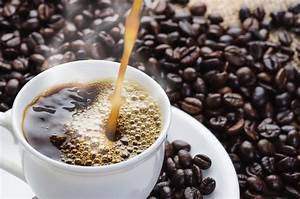Energy Drinks and Blood Pressure By Pierre Mouchette | Bits-n-Pieces Energy drinks account for nearly 1 in every 3 drinks sold at convenience stores in the U.S. They are a multibillion-dollar industry. People reach for them for different reasons to get through a long workday, get an extra boost before a workout, or to help find a second wind.
Research shows that men under 35 and teens are most likely to use these products. Most people in these age groups are reasonably healthy. But these drinks can still harm their blood pressure and heart rate. And some may have health conditions that make this dangerous. What Is An Energy Drink? Energy drinks are marketed to improve energy and mental focus. The CDC defines an energy drink as one that may contain large amounts of:
Many companies make energy drinks, and the government does not closely regulate them, meaning it is hard to know what is in them. It is enough of a concern that the U.S Anti-Doping Agency recommends athletes avoid these drinks because they could contain banned substances. Do energy drinks raise blood pressure? Yes. It is mainly from the high amount of caffeine in energy drinks. But these products also contain other stimulants that can affect blood pressure. The best-selling brands have at least 100 mg of caffeine, similar to a cup of coffee. This amount can raise blood pressure by up to 15 points in some people. But, in some cases, energy drinks have more caffeine than the label reports. Some brands have as much caffeine as 7 cups of coffee. At this dose, blood pressure may climb much higher. That is especially true if you drink more than one serving. But the story does not end there. Many energy drinks also contain substances like guarana and bitter orange. These additives are intended to have a stimulant effect and may also affect blood pressure. It is important to note that most studies of energy drinks have tested them on young, healthy people. If you have health conditions like hypertension or heart disease, you may be more sensitive to the effects of these products. Which energy drinks increase your blood pressure the most? The more caffeine and other additives in an energy drink, the more likely it is to raise your blood pressure. And the more you drink, the more intense the side effects will be. The FDA lists 400 mg of caffeine a day as a safe maximum. But some people will have problems with much smaller amounts. One problem with energy drinks is that the labels are not always clear. The average energy drink has 18 different ingredients. The label usually does not state the amount of each ingredient. And many of the listed ingredients may have confusing names, or they can be hard to recognize. It means you may be getting more caffeine and other stimulants than you realize. How Long Do Energy Drinks Increase Blood Pressure? Energy drinks can include a wide range of ingredients. That is why knowing how long the effects can last is tricky. The effects on blood pressure may generally last at least 2 hours. Are Energy Drinks Bad For Your Heart? Yes, energy drinks can potentially cause serious harm to your heart. In the U.S., energy drinks account for more than 20,000 visits to the emergency room each year. While rare, there are reports of energy drinks leading to life-threatening heart conditions, including:
Are Energy Drinks Bad For Your Blood Pressure And Heart Over The Long Term? You are not likely to cause permanent damage to your heart from an occasional energy drink. The effects on heart rate and blood pressure will usually wear off after a few hours. But regular use may cause higher blood pressure and heart palpitations. You should get immediate medical attention if you experience:
0 Comments
Your comment will be posted after it is approved.
Leave a Reply. |
Archives
May 2024
|
